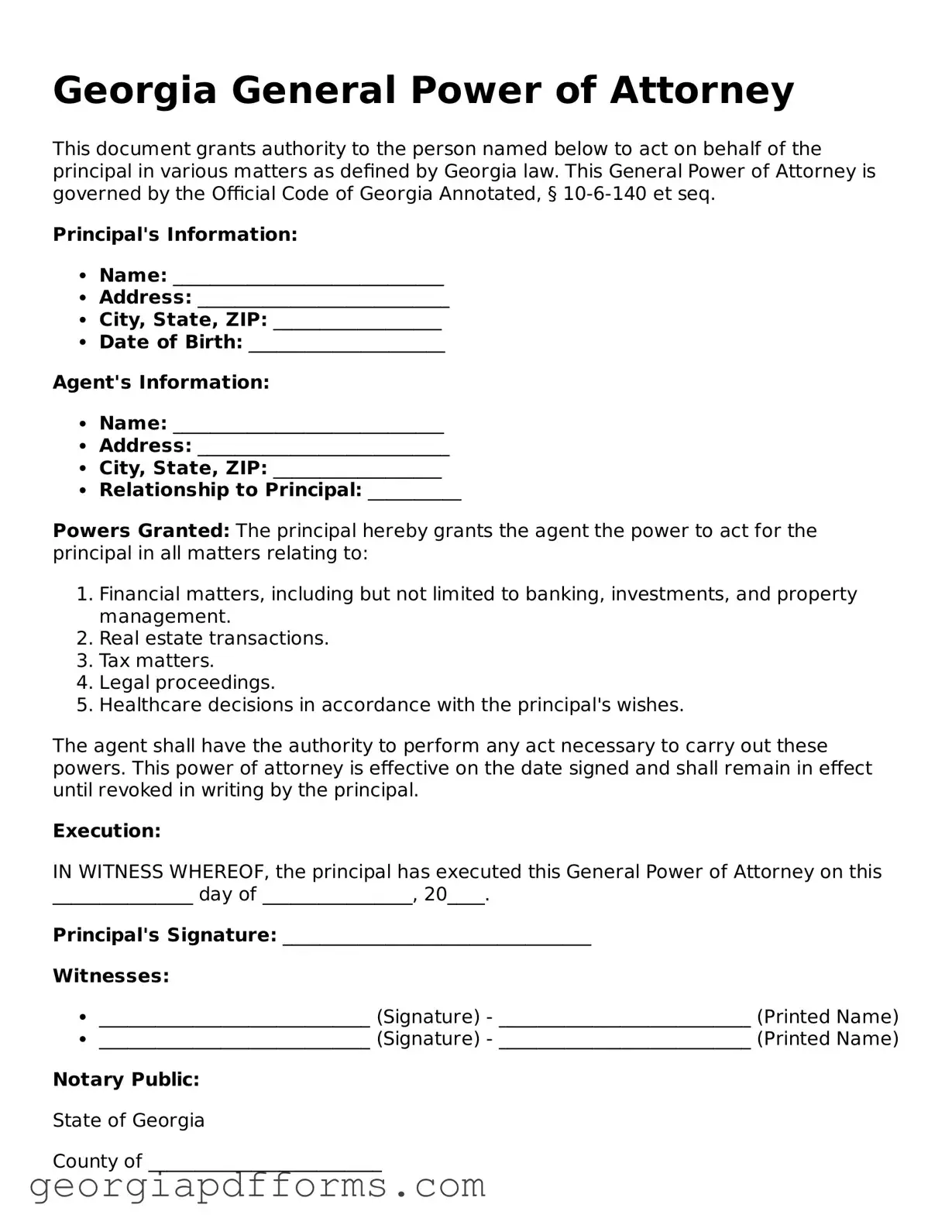What is a General Power of Attorney in Georgia?
A General Power of Attorney in Georgia is a legal document that allows one person, known as the principal, to appoint another person, called the agent or attorney-in-fact, to act on their behalf. This authority can cover a wide range of financial and legal matters, such as managing bank accounts, signing contracts, and making healthcare decisions. The powers granted can be broad or limited, depending on the principal's wishes. It's important to understand that this document only remains valid while the principal is mentally competent; if the principal becomes incapacitated, the power of attorney may no longer be effective unless specified otherwise.
How do I create a General Power of Attorney in Georgia?
To create a General Power of Attorney in Georgia, you must first decide who you want to appoint as your agent. Once you've chosen your agent, you will need to complete a power of attorney form, which can often be found online or through legal resources. It’s crucial to ensure the form complies with Georgia law. After filling out the form, you must sign it in front of a notary public. While witnesses are not required, having them can add an extra layer of protection and verification. Once signed and notarized, the document is effective immediately unless you specify a different start date.
Can I revoke a General Power of Attorney in Georgia?
Yes, you can revoke a General Power of Attorney in Georgia at any time, as long as you are mentally competent. To revoke the power of attorney, you should create a written revocation document and notify your agent of the change. Additionally, it is wise to inform any institutions or individuals who may have relied on the original power of attorney that it has been revoked. This ensures that they do not accept instructions from the former agent after the revocation is in effect.
What happens if the principal becomes incapacitated?
If the principal becomes incapacitated, the General Power of Attorney typically becomes ineffective unless it was specifically designed to remain in effect during such circumstances. This type of document is known as a Durable Power of Attorney. If you want your agent to continue making decisions on your behalf in the event of incapacity, it’s important to clearly state this in the power of attorney document when you create it. Otherwise, a court may need to appoint a guardian to manage your affairs, which can be a lengthy and complicated process.
Is it necessary to have a lawyer to create a General Power of Attorney in Georgia?
While it is not strictly necessary to hire a lawyer to create a General Power of Attorney in Georgia, it can be beneficial. A lawyer can help ensure that the document is properly drafted, complies with state laws, and accurately reflects your intentions. If your situation is complex, such as involving significant assets or specific wishes regarding healthcare, consulting with a legal professional can provide peace of mind and help avoid potential issues in the future.

